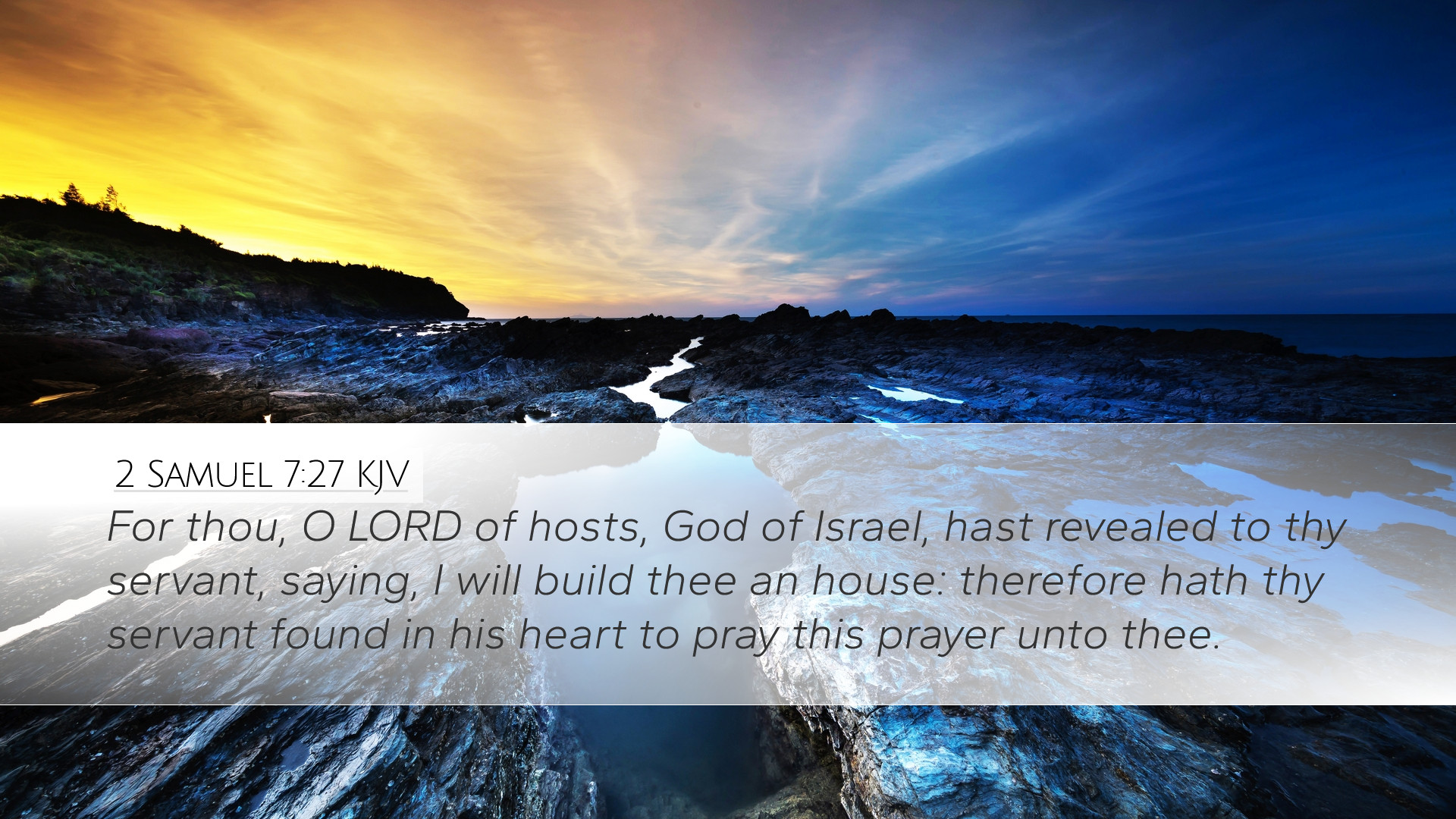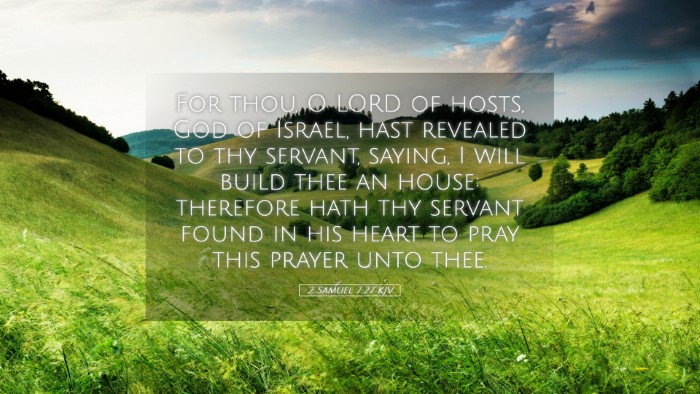Commentary on 2 Samuel 7:27
Verse Text: "For thou, O Lord of hosts, God of Israel, hast revealed to thy servant, saying, I will build thee a house: therefore hath thy servant found in his heart to pray this prayer unto thee."
Introduction
This verse is pivotal in understanding God's covenant with David and the establishment of the Davidic line. It encapsulates the promise God made regarding a house, signifying not only a physical structure but also a dynasty that would lead to the Messiah. The insights from various esteemed commentaries enhance our comprehension of this profound passage.
Divine Revelation
David’s prayer is a response to divine revelation. According to Matthew Henry, this passage highlights the significance of God communicating directly with His people. Henry emphasizes that God’s promises are not random but are revealed to prepare the hearts of those who seek Him.
Albert Barnes notes that the term "revealed" suggests an intimate and personal relationship between God and David. God’s declaration to David, as Barnes explains, highlights the prophetic nature of God’s intentions, guiding David’s understanding of his role within God's overarching plan.
The Promise of a House
The "house" mentioned in this verse is multifaceted. Adam Clarke expounds on the different interpretations of "house," noting it refers not only to a physical temple but also to David’s lineage. Clarke asserts that this promise foretells the coming of Christ, who would arise from David’s line.
Henry elaborates further, suggesting that the house God builds represents God's kingdom established through David's descendants, culminating in the eternal reign of Jesus Christ. This interpretation roots itself in the Messianic prophecies that echo through the Old Testament, reinforcing the belief that God's promises are fulfilled through the lineage of David.
David's Heartfelt Response
David's response is marked by humility and gratitude. “Hath thy servant found in his heart to pray this prayer...” suggests a deep introspection and acknowledgment of God’s grace. Barnes points out that David recognizes the enormity of God’s favor, which is a key characteristic of a servant leader.
Henry further illustrates the personal nature of David’s relationship with God, stating that true prayer arises from a heart that is moved by the divine assurance. This conveys for pastors and church leaders the importance of nurturing a heartfelt prayer life, rooted in the awareness of God’s faithful promises.
Theological Insights
- The Nature of God: God is depicted as the "Lord of hosts," a title that emphasizes His sovereignty and authority over all creation. This serves as a reminder for theologians to recognize God's supreme power in their studies and teachings.
- Covenantal Theology: This verse is foundational for understanding biblical covenants. Scholars should note how this promise connects to subsequent covenants leading to the New Testament, particularly the Davidic Covenant's fulfillment in Christ.
- The Role of Prayer: David’s prayer signifies a response to revelation. Clarke points out that prayer is a dialogue with God, demonstrating faith in His promises. This is essential for all faith leaders, as it illustrates the need for reliance on God’s guidance.
Application for Ministry
For pastors and ministry leaders, reflecting on David’s response can inspire authentic worship and service. Recognizing God’s past revelations should fuel our current prayers and aspirations as we seek to fulfill His will within our communities.
Students and scholars must understand the historical and theological implications of this verse for deeper preaching and teaching. Engaging with the depth of meaning found in 2 Samuel 7:27 can foster a richer understanding of God’s unfolding plan throughout Scripture.
Conclusion
2 Samuel 7:27 encapsulates the rich tapestry of divine promise and human response. The insights gained from public domain commentaries remind us of the importance of recognizing God's revelations and the significance of our responses to them. This passage is not merely a historical account but a living testament of God's faithfulness and a model for prayer and worship in the life of believers.


